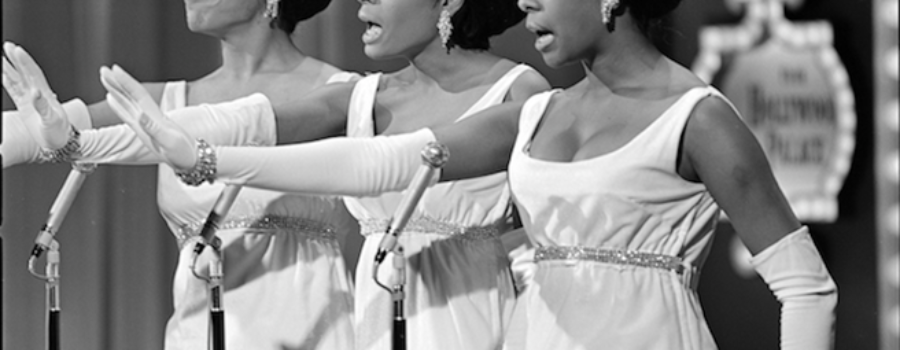As the youngest of five siblings, four who came of age during the 1960’s in upstate New York, I’d like to share some historical perspective given the turmoil our country has experienced recently. My purpose is not to make any political statements but rather to provide context.
IMHO, context seems to be a big piece of our shared experiences that is missing from today’s dialog. I had a mentor who impressed upon me that when things became difficult or challenging, to use the phrase “compared to what?” That phrase has stuck with me all my working life.
Its 1965.
I can still see my two older sisters, somehow sharing one tiny bathroom, making ready for work and high school, doing the Diana Ross move while singing “Stop in the name of love.” I thought, how can these two girls coordinate all that activity in this one tiny bathroom? It looked like they had it down to a science and were perfectly happy to navigate what they had to do. I guess we all did.
Here are some things below our family experienced as life in America in the year of 1965. They impacted all of us deeply. I will leave it to your good judgment to do your own compare and contrast with regard to my mentors phrase of compared to what?
- Lyndon B. Johnson began his full term in office as the President of the United States. He had defeated Barry Goldwater of Arizona in the 1964 electoral college vote, 486-52. This was the first election cycle since the assassination of John F. Kennedy. A famous quote from his inaugural address in 1961 has also stuck with me over the years, “Ask not what your country can do for you; ask what you can do for your country.”
- President Johnson proclaimed his broad vision for America via the “Great Society“ during his State of the Union address. Johnson’s program was aimed at eradicating poverty and racial injustice in America. Has it? 50 plus years later, my mind keeps asking, today “compared to what?”
- There was a march from Selma to Montgomery, Alabama, under the non-violent leadership of Martin Luther King, Jr. Approximately 500 civil rights marchers headed east out of Selma. It was stopped at the nearby Edmund Pettus bridge at what would come to be known as Bloody Sunday. State and local lawmen attacked them with billy clubs and tear gas.
- In Montgomery Alabama, 1,500 civil rights marchers demonstrate at the Courthouse. In response to the events of Selma, President Johnson sends a bill to Congress that forms the basis for the Voting Rights Act of 1965. It is passed by the Senate May 26, the House July 10, and signed into law by the President August 6. Again, 50 plus years later, my mind keeps asking, today “compared to what?”
- In March 1965 3,500 United States Marines arrive in South Vietnam, becoming the first American combat troops to enter the Vietnam War. On April 17, the “Students for a Democratic Society” or SDS drew 25,000 protesters to Washington, DC to march against the Vietnam War.
- By November, pentagon planners told President Johnson that the number of American troops in Vietnam will have to be increased from 120,000 to 400,000 to neutralize Viet Cong forces during the next year. The SDS would become more militant and later allegedly some of its founders helped instigate the violence outside the Democratic convention in Chicago in 1968 after Chicago’s mayor Daley refused to authorize protest permits.
- Fast forward to early 1968, Johnson said in a national address that he would not seek a second full term, saying “I shall not seek, and I will not accept, the nomination of my party for another term as your president.” Seemed ironic that LBJ’s decision to escalate our involvement in the war in 1965 led in part to the chaos that erupted in American cities even as he rolled out his Great Society. Surely, we must have made some progress in over half a century. Haven’t we?
- It was in 1968 that former vice president Richard Nixon, defeated the Democratic nominee, incumbent vice president Hubert Humphrey. Nixon ran on a campaign that promised to restore law and order to the nation’s cities and provide new leadership in the Vietnam War. 50 plus years later, my mind keeps asking, today “compared to what?”
Culturally, let’s just say that things were starting to change and change itself cycles with each successive generation. Looks like we are witnessing it again today. Is it justified?
The generation prior to the 60’s, the WWII crowd, was looking at the turmoil of some of the young people as if they had gone completely crazy. They could not get a handle on what was being displayed and played out in America’s streets. It was alien. They had gone off the deep end. Was it justified?
In some ways, I think we as a people have ‘been there and done that.’ Makes me wonder what information, or lack of it, has been handed down to people today. Regardless of their point of view, one would hope they could operate individually within a true historical context.
My gut feeling is that many today are not and that is unfortunate. When things become difficult or challenging, again 50 plus years later, my mind keeps asking, today “Compared to what?”

